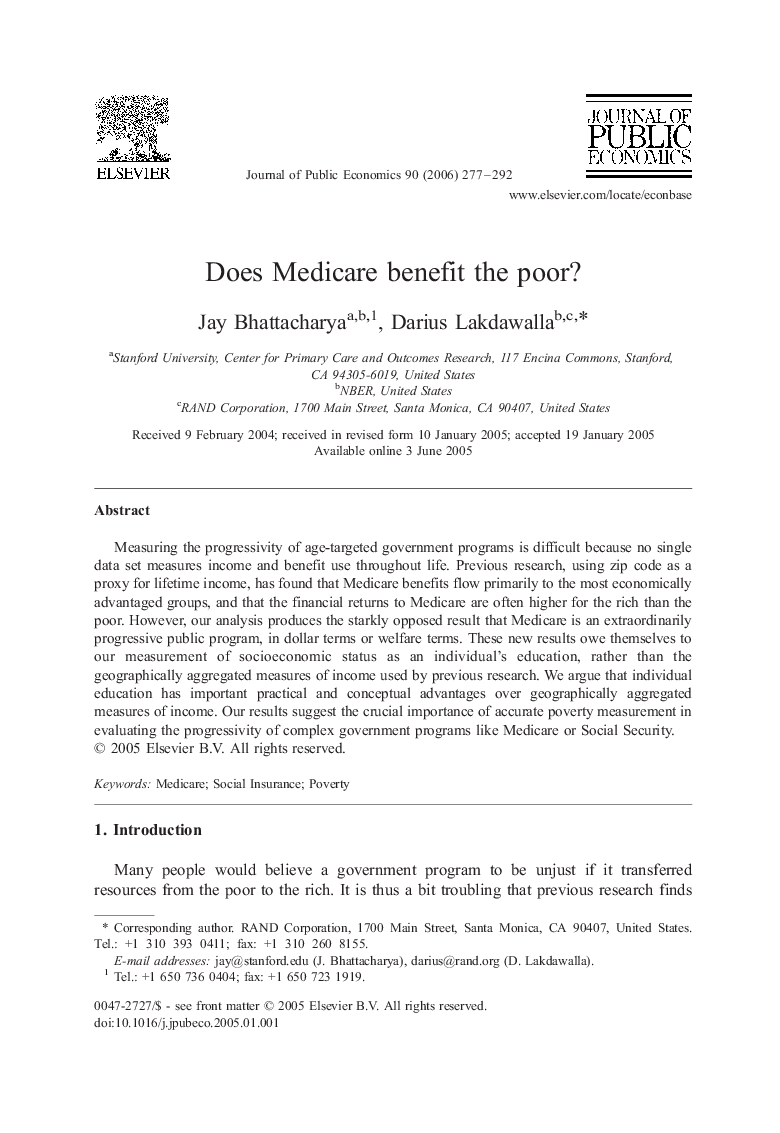| کد مقاله | کد نشریه | سال انتشار | مقاله انگلیسی | نسخه تمام متن |
|---|---|---|---|---|
| 969610 | 1479500 | 2006 | 16 صفحه PDF | دانلود رایگان |

Measuring the progressivity of age-targeted government programs is difficult because no single data set measures income and benefit use throughout life. Previous research, using zip code as a proxy for lifetime income, has found that Medicare benefits flow primarily to the most economically advantaged groups, and that the financial returns to Medicare are often higher for the rich than the poor. However, our analysis produces the starkly opposed result that Medicare is an extraordinarily progressive public program, in dollar terms or welfare terms. These new results owe themselves to our measurement of socioeconomic status as an individual's education, rather than the geographically aggregated measures of income used by previous research. We argue that individual education has important practical and conceptual advantages over geographically aggregated measures of income. Our results suggest the crucial importance of accurate poverty measurement in evaluating the progressivity of complex government programs like Medicare or Social Security.
Journal: Journal of Public Economics - Volume 90, Issues 1–2, January 2006, Pages 277–292